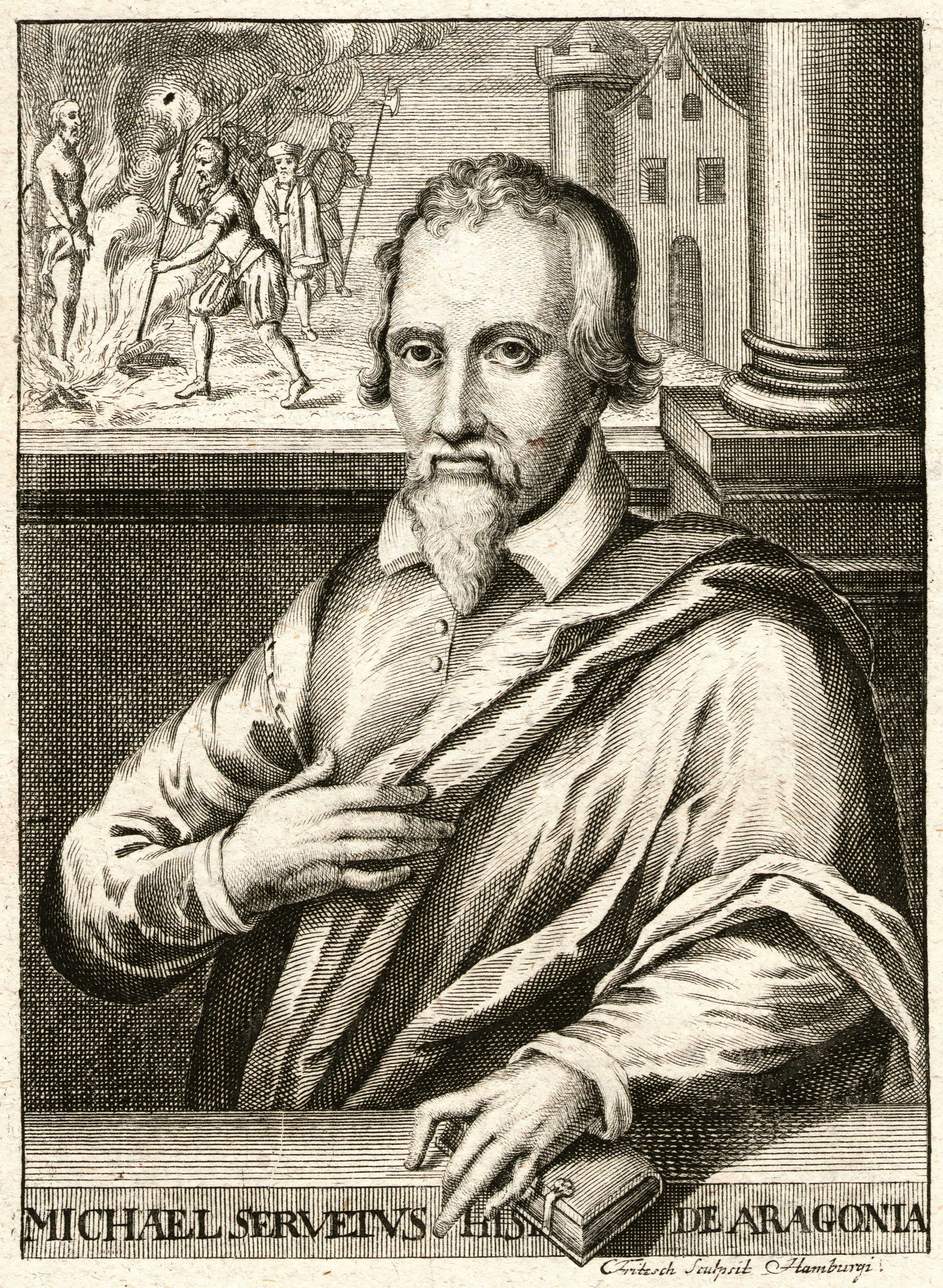Letter to Oecolampadius, an hebraist of Basel, as quoted by Francisco Javier González Echeverría, and translated by Otis Towns & Miguel González Ancín in the English "Introduction" at Michael Servetus Rresearch http://www.michaelservetusresearch.com/ENGLISH/
Contexto: Inherent of human condition is the sickness of believing the rest are impostors and heathen, and not ourselves, because nobody recognizes his own mistakes … If one must condemn everyone that misses in a particular point then every mortal would have to be burnt a thousand times. The apostles and Luther himself have been mistaken … If I have taken the word, by any reason, it has been because I think it is grave to kill men, under the pretext that they are mistaken on the interpretation of some point, for we know that even the chosen ones are not exempt from sometimes being wrong.
Miguel Servet: Frases em inglês
“Michael Servetus, alone, but trusting in Christ’s most sure protection.”
While in prison, Servetus signed his last letter with these words.
Michael Servetus—A Solitary Quest for the Truth (2006)
Letter to Oecolampadius, an hebraist of Basel, as quoted by Francisco Javier González Echeverría, and translated by Otis Towns & Miguel González Ancín in the English "Introduction" at Michael Servetus Rresearch http://www.michaelservetusresearch.com/ENGLISH/
Contexto: Inherent of human condition is the sickness of believing the rest are impostors and heathen, and not ourselves, because nobody recognizes his own mistakes … If one must condemn everyone that misses in a particular point then every mortal would have to be burnt a thousand times. The apostles and Luther himself have been mistaken … If I have taken the word, by any reason, it has been because I think it is grave to kill men, under the pretext that they are mistaken on the interpretation of some point, for we know that even the chosen ones are not exempt from sometimes being wrong.
“Poor people always lose in struggles.”
A sentence from his first edition of Ptolemy's Geography (1535)
At the age of 20, he published On the Errors of the Trinity, a work that made him a principal target of the Inquisition.
Michael Servetus—A Solitary Quest for the Truth (2006)
Statement with respect to both Catholics and Protestants written after his work On the Errors of the Trinity
Michael Servetus—A Solitary Quest for the Truth (2006)
Such considerations were reinforced when he attended the coronation of Charles V, Holy Roman Emperor by Pope Clement VII, and witnessed the Pope, seated on his portable throne, receive the king, who kissed his feet.
Michael Servetus—A Solitary Quest for the Truth (2006)
